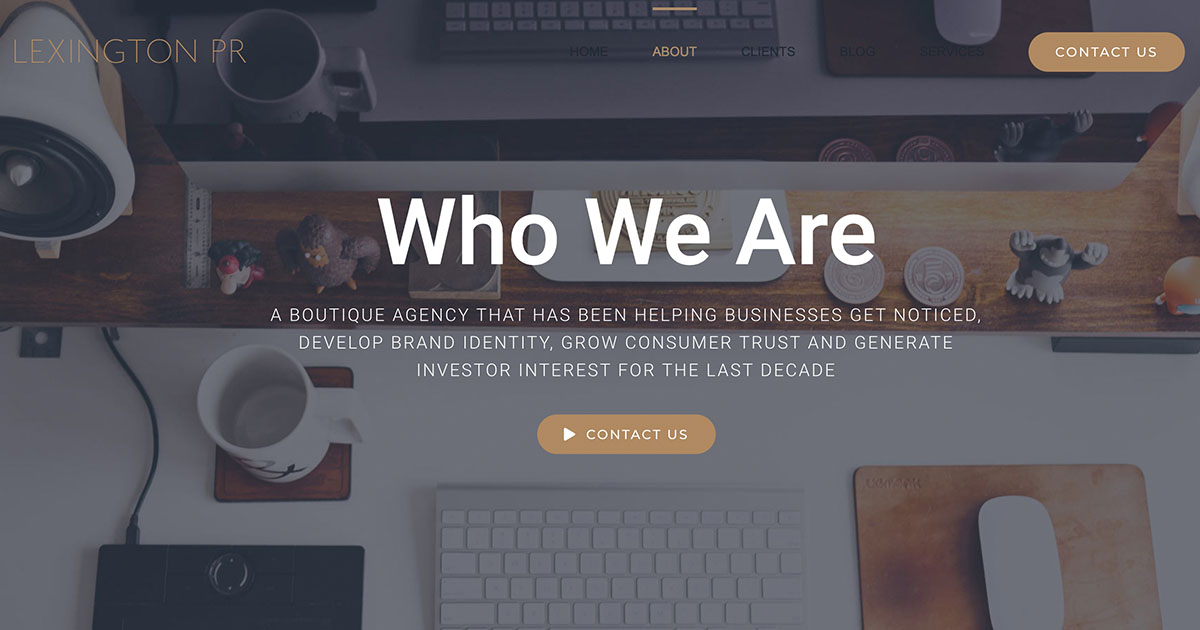Developing an Effective Public Relations Strategy
The Origin Story of Lexington

Last Updated: By TRUiC Team
Public relations is a critical task, especially for founders. However, there’s no one-size-fits-all PR solution for every company. Instead, you need to adapt your strategies to the needs of a specific business. Suki Mulberg, founder of the public relations firm Lexington PR, discusses how she got started in PR and decided to strike out on her own after a successful career working in the field for various retailers.
This is Lexington PR’s origin story.
Starting Out in PR
Suki began her PR career before she was even out of college. “So I started my career in New York City, and in college there, I had the opportunity to intern at a couple places in public relations,” she says. “My first position out of school was with Kenzo, which is a French luxury goods brand. I oversaw PR for them across the US and in Canada. And from there, I hopped over to Elizabeth Arden, handling more [of the] beauty PR space.”
After that, she got a job handling PR in-house for Williams Sonoma in San Francisco. “It was more from the perspective of a retailer working that sells brands, so you're doing PR on behalf of the products that are sold there, but also off of hundreds of stores across the country,” she says. And then from there, I went independent. So it's been a little more than a decade ago and started working with businesses across a much larger array of sectors.”
An ‘Accidental Entrepreneur’
Suki describes herself as an “accidental entrepreneur” who simply grew tired of her existing career. “I think I had a lot of burnout. I knew what I was doing. I felt very confident in the work I was able to do, what I had learned in those three positions,” she says. “And I really was excited about the idea of A, creating my own business, but B, being able to work with a greater variety, I think, of businesses and different types of stories as opposed to being in-house in just one location.”
Another impetus for starting Lexington was the fact that she was working crazy hours anyway for someone else, so why not work for herself instead? “So I took a leap of faith and found my first client, which was a brand that was sold at Williams Sonoma, where I had worked previously. And then from there, it just kind of snowballed and grew.”
As any founder knows, starting your own company takes everything you have. So although her hours didn’t decrease, she felt different about the work. “I didn't work less hours for sure – definitely not,” she said. “But it is a different type of burnout. I think it was more motivating. I was excited about what I was doing and feeling like the hours I was … putting in were growing something for me as well.”
Different Skill Sets and Focus
Over the course of her career, Suki has learned that working in PR in different contexts requires different skill sets.
“[I]f you're working on a brand … you live and breathe everything the brand does, every launch that happens,” she said. “I think your whole kind of universe, from a PR landscape at least, is about, are you launching something new? Are you prepping for a product launch? And you would want to partner with those retail partners, is there on behalf of the retailer that that's launching at, if there is one to help support that … [I]t really comes down to what is your brand about, what are your brand values, what does your brand signify, what do you want people to think of when they think of that brand.”
By contrast, working for a retailer requires selling more than one brand, and that changes your focus somewhat when it comes to the customer. “I think [customer experience] is definitely part of both, but it's really a part of a retail location … when somebody goes into a store, and they walk through,” she says. “And I think there's just a little bit of a different level of complexity when you're looking at retailers that have hundreds of stores across the country … [W]hat are the key brands that the retailer really wants to promote, and how can you support that internally as well in conjunction with their own teams?”
In the end, PR strategies should be tailored to the needs of your company, whether it’s one you work for or one you started yourself. In the case of a company with physical locations, that would entail increasing foot traffic by hosting events, etc. If it’s online, that means attracting internet traffic. “I think at the end of the day … you're trying to get customers in front of that retailer, and you want to convey the values of the retailer and why people should shop with you, and why should they trust you, and why should they feel good about spending their money with you,” she said.
Tell Us Your Startup Story
Are you a startup founder and want to share your entrepreneurial journey with our readers? Click below to contact us today!





